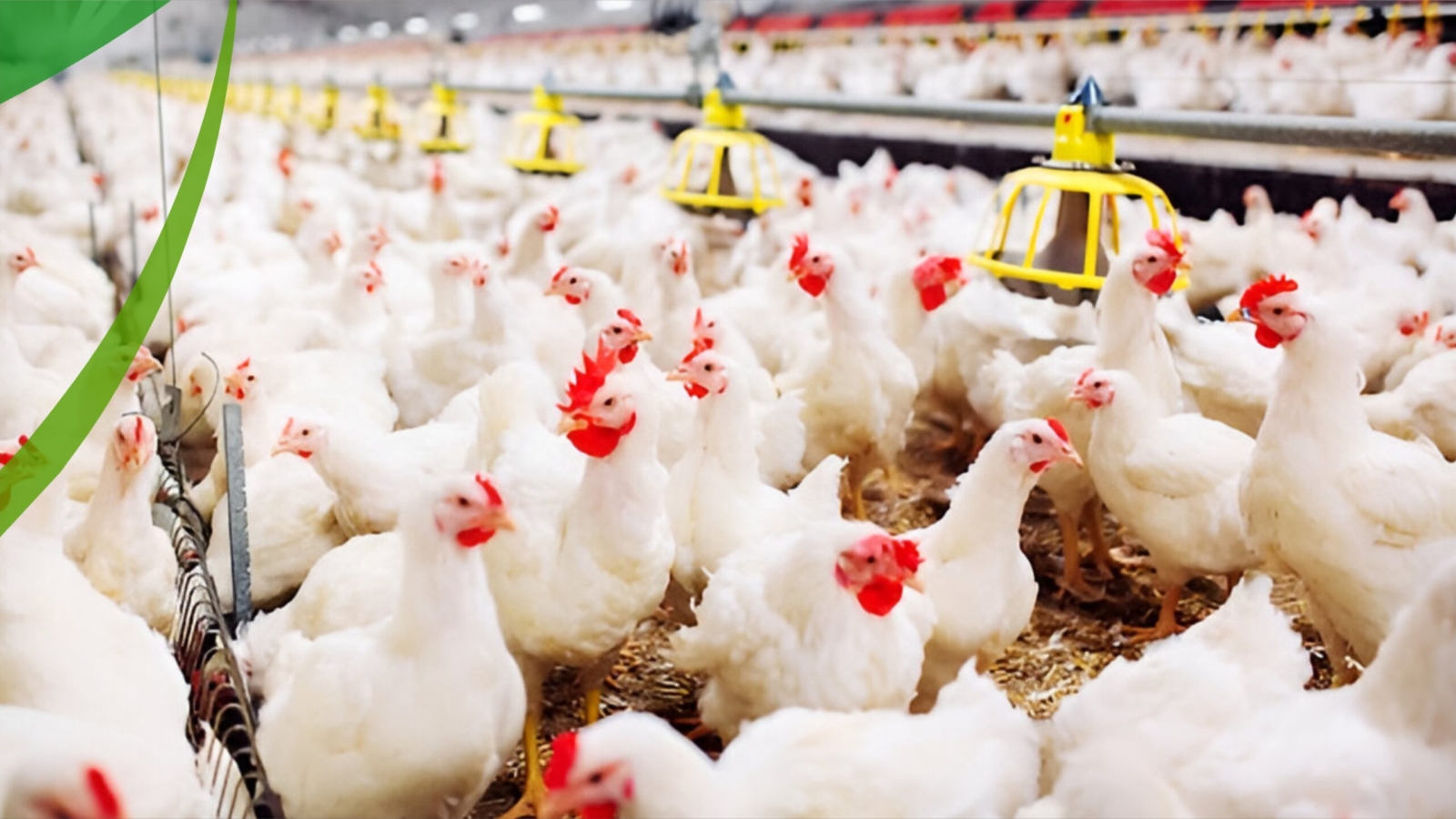The Essential Nutrients for Healthy Livestock are not some fancy extras—they’re the simple, powerful keys to keeping your animals alive, strong, and productive. Whether you raise chickens, goats, pigs, or cows, what you feed them can make all the difference.
In this guide, we’ll walk through seven important nutrients, including protein, carbohydrates, vitamins, and even clean water—yes, water is a nutrient too! We’ll break it all down in plain English, with real-life examples and tips anyone can follow, whether you run a big farm or just keep animals at home.
Feeding your animals is a bit like fueling a car—you can’t expect it to run smoothly if you’re always running on empty. So, let’s learn what really keeps your livestock moving, growing, and thriving.
1. Protein – The Building Block of Growth
If your chickens were construction workers, protein would be the bricks they use to build strong, healthy bodies. It’s the main ingredient their bodies need to grow muscles, develop feathers, and stay active. For young layers especially, protein is crucial during the growing phase when they’re developing the strength to start laying.
Proteins are made up of amino acids—the stuff that builds every part of the bird, inside and out. When hens don’t get enough, you’ll start to notice problems. They may grow slower, look weak, or lay fewer eggs. Sometimes their feathers look dull or they become more aggressive toward each other. All these are signs that they’re not getting the nutrients they need.
One of the Essential Tips for Successful Egg Production is to make sure your birds get the right amount of protein in their feed, especially during their growing and laying phases. Feed that includes soybeans, fish meal, groundnut cake, or even insect-based protein like maggots can help boost their levels. Keep in mind that too much protein can also be a problem, so it’s about balance—not overload. Give them the right tools, and they’ll build strong, egg-producing bodies from the inside out.
2. Carbohydrates – The Daily Energy Fuel
Think of carbohydrates as the everyday fuel your chickens run on. Just like we need food to stay energized through the day, chickens need carbs to scratch, peck, cluck, and of course—lay those beautiful eggs. Without enough energy, even the healthiest bird won’t perform at its best.
Carbs provide heat, which is especially important during the cold months. They also give your birds the strength to roam around, digest properly, and maintain steady egg production. When chickens don’t get enough energy from carbs, their body begins to burn protein for energy instead—and that’s not what you want. Protein should be saved for growth and eggs, not for powering daily movement.
A smart farmer knows that Essential Tips for Successful Egg Production go beyond protein and include energy-rich carbs like maize, cassava peels, and even cooked yam peels. These ingredients are easy to source, affordable, and full of the energy birds need to stay active. Just like giving a car enough petrol before a trip, giving your chickens enough carbohydrates keeps them going strong. If they’re energetic and content, your egg basket will thank you.
3. Fats – The Concentrated Energy Reserve
Fats might not get talked about much, but they’re a quiet hero in your chicken’s diet. While carbohydrates offer quick energy, fats serve as long-term reserves. Think of it like having money in your wallet versus savings in the bank. When the quick energy runs out, fat steps in to keep things going—especially during times when feed is limited or the weather gets too cold.
Fats also help chickens absorb vitamins better. Some vitamins, like A, D, E, and K, are fat-soluble—meaning they need fat to be fully used by the body. Without enough fat in their diet, even the best vitamin-rich feed can fall short. Fats also help with body insulation, keeping your birds warm and less prone to stress when the weather changes.
Among the Essential Tips for Successful Egg Production is the reminder not to fear healthy fats. You can provide fats through natural sources like palm kernel cake, oil-rich grains, or a small addition of cooking oil to their mash. But moderation is key—too much fat can lead to obesity and low egg yield. Like everything else in poultry farming, balance is what keeps your flock healthy and productive.
4. Vitamins – The Small but Mighty Helpers
It’s easy to overlook vitamins because they don’t take up much space in feed bags. But make no mistake—they’re the unsung heroes of your chicken’s health. Vitamins help with everything from boosting the immune system to improving egg shell quality. They keep feathers shiny, joints strong, and eyes sharp. Without them, even a well-fed chicken can fall sick or stop laying.
Each vitamin plays its own role. Vitamin A helps with vision and growth, D supports calcium absorption for strong eggshells, E helps with reproduction, and B-complex vitamins are vital for energy and metabolism. If your birds look tired, aren’t laying well, or seem off-balance, it might not be the big nutrients they’re missing—it could be these tiny ones.
One of the Essential Tips for Successful Egg Production is to make sure your layers get a steady dose of these vitamins, especially during high-stress times like extreme heat or the start of their laying cycle. You can get multivitamin supplements at any agro-vet shop, or mix in vitamin-rich greens like pumpkin leaves, moringa, or pawpaw leaves. They may be small, but vitamins carry a big punch—and your hens will lay better and live longer when they get enough.
5. Minerals – The Body’s Inner Support Team
If you think of your chickens as little machines, then minerals are the nuts and bolts holding everything together. They may not be flashy, but they play a huge role in keeping your birds running smoothly. Without them, all the protein and vitamins in the world won’t be enough.
Calcium and phosphorus are two of the most important minerals for egg-laying hens. Calcium helps form strong eggshells, while phosphorus supports bones and energy use. When birds don’t get enough calcium, their eggs become soft or shell-less—and that can lead to problems like egg binding or even death. Other minerals like sodium, magnesium, zinc, and selenium also help with nerves, feather strength, and disease resistance.
Among the Essential Tips for Successful Egg Production is the reminder to never overlook mineral intake. You can provide minerals in simple ways: offer oyster shells or crushed limestone for calcium, and make sure their feed includes salt and other trace minerals. Many farmers also use mineral blocks or powder supplements to top up what their chickens don’t get from their feed. It doesn’t have to be complicated—just consistent. The right minerals keep your hens strong on the inside, so they can lay their best on the outside.
6. Clean Water – The Forgotten Nutrient
It’s easy to focus on feed and forget about water—but for chickens, water is just as important as food. In fact, a chicken can go longer without food than without clean drinking water. Their bodies are made up of about 60-70% water, and it’s needed for everything—from digestion to temperature control to egg production.
On hot days, birds can lose a lot of water through panting and evaporation. If they don’t have easy access to clean water, their appetite drops, and so does their egg output. Dirty or stagnant water is also a quick way to spread disease, especially in the rainy season when bacteria builds up fast. You may not always see it, but water quality has a direct link to the health of your flock.
Tucked quietly among the Essential Tips for Successful Egg Production is the habit of checking and changing your chickens’ water daily. Make it a routine. Use clean containers, wash them often, and keep them out of the sun to avoid algae buildup. It might feel like a small detail, but for your birds, it’s the difference between thriving and merely surviving. Think of water as their invisible fuel—it keeps everything flowing.
7. Fiber – The Gut’s Best Friend
When people think about poultry nutrition, fiber usually doesn’t make the list. It doesn’t sound exciting, and it’s not a direct source of energy or growth. But here’s the truth: fiber is like a natural broom for your chicken’s digestive system. It helps keep things moving smoothly and keeps their guts healthy and balanced.
Fiber is especially important for ruminants like goats and cows, but even chickens benefit from small amounts in their diet. It prevents problems like pasty butt in chicks and helps avoid constipation in adult birds. Chickens that have regular access to fiber-rich feed are more likely to digest their food properly, absorb nutrients better, and stay fuller for longer—which helps reduce pecking and stress.
It’s no surprise that among the Essential Tips for Successful Egg Production, a balanced amount of fiber is quietly essential. You don’t need to buy anything special—things like rice husks, chopped grass, and even dry leaves can do the job. Just mix them lightly with regular feed or scatter some in the run. A clean gut means a healthy bird, and a healthy bird means more eggs in your basket. Sometimes, the best results come from the things we nearly forget.
Conclusion
Raising healthy animals isn’t about spending more—it’s about feeding smarter. By focusing on these seven essential nutrients, you give your livestock a strong foundation to grow, reproduce, and stay disease-free.
Remember, sick animals cost money. But healthy animals? They’re your quiet business partners—working, growing, and earning with every bite they take. Give them what they need, and they’ll give back even more.


Leave a Comment